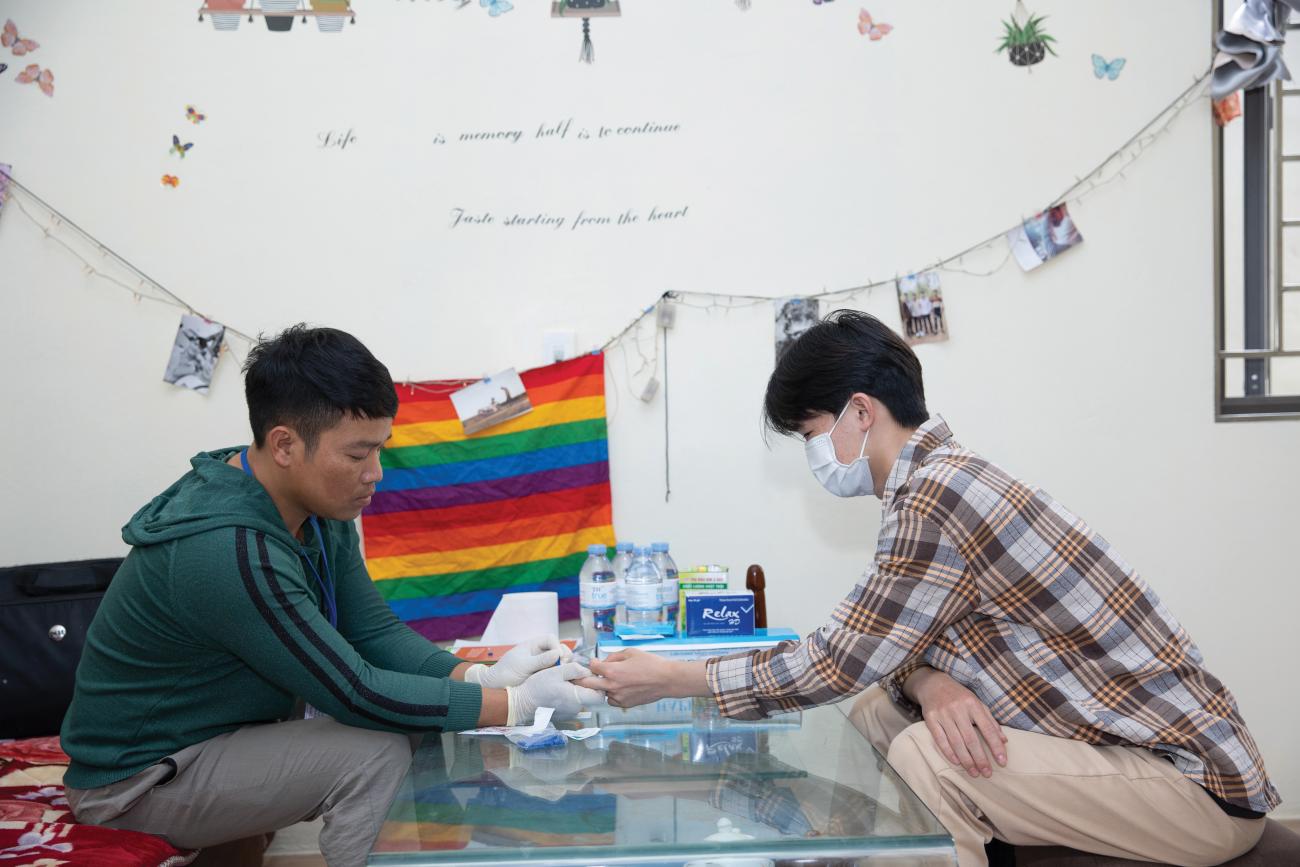The mountainous Dien Bien province in the north-western region of Vietnam is home to many people from the Thai ethnic group, including Lo Van Huy (not his real name). Huy is his family's only son and his extended family's firstborn son.
Huy’s family started doubting his sexual orientation during high school. His family openly pressured him to get married and even sent him for “treatment of homosexuality”. Throughout high school, he was ill-spoken by the surrounding community and felt unaccepted by his loved ones. Shame and devastation almost pushed him to the edge of committing suicide. Subsequently, Huy spent much time on social media at home to avoid social pressure in his neighbourhood.
On an online platform, he met his lover, a young man from another district of Dien Bien province. He also got contacted by a community-based organisation (CBO) of men who have sex with men (MSM) in Dien Bien province through social media. The organisation provided Huy counselling and HIV screening test and distributed condoms and lubricants to him for HIV prevention afterwards.
Upon graduating from high school, Huy moved to Hanoi for work to avoid the stigma and family pressure related to his sexual orientation while his boyfriend was still studying in Dien Bien province. They remained lovers but haven’t come out. Fearing information disclosure and not having sex partners, Huy did not actively reach out to any MSM CBO in Hanoi and stayed connected with the peer educator he is familiar with from the MSM CBO in Dien Bien province.
As a result, not until he returned to visit his hometown in September this year did Huy have a second HIV screening test and continue to receive condoms and lubricants. He was introduced to pre-exposure prophylaxis (PrEP)[1] services but was not willing to be referred to PrEP service in Hanoi while PrEP is still unavailable in his hilly home province.
“We reached out to MSM in Dien Bien province mostly through mobile apps, and social media closed groups before getting connected in person. Many are young MSM living in districts, hiding their sexual orientation out of fear of stigma and lacking understanding of safe sex and HIV. I wish we will soon have PrEP service in Dien Bien so HIV prevention will be easier and more effective for my community.” Said Lo Van Thinh, head of Hoa Ban Trang MSM CBO in Dien Bien province.
The HIV epidemic is surging among MSM, especially young MSM in Viet Nam. 47% of newly diagnosed HIV infections in 2020 were among MSM. HIV prevalence among young MSM (15 – 24 years) quadrupled, from 3% in 2011 to 13% in 2020. The lack of PrEP services across the country will negate the gains in preventing HIV infections among MSM. Evidence shows PrEP reduces the risk of getting HIV from sex by about 99%[2].
“Further scaling up and sustaining high impact HIV interventions such as PrEP is key for Viet Nam to achieve HIV targets by 2025 and stay on track to end AIDS as a public health threat by 2030,” said Dr Maria Elena Filio Borromeo, Country Director of UNAIDS in Viet Nam.
Reducing the geographical differences in HIV services availability enables the hard-to-reach populations to timely access highly effective HIV prevention and other essential HIV services in any setting that they find safe and trustful. Increasing the availability, quality and suitability of HIV-related services across the country is instrumental to an equitable and sustainable HIV response in Viet Nam.
[1] Pre-exposure prophylaxis (PrEP) is a highly effective preventive treatment to prevent sexual transmission of HIV among men who have sex with men.
[2] US CDC. (2022). Pre-Exposure Prophylaxis (PrEP). Available at: https://www.cdc.gov/hiv/risk/prep/index.html#:~:text=PrEP%20reduces%20the%20risk%20of,use%20by%20at%20least%2074%25.




